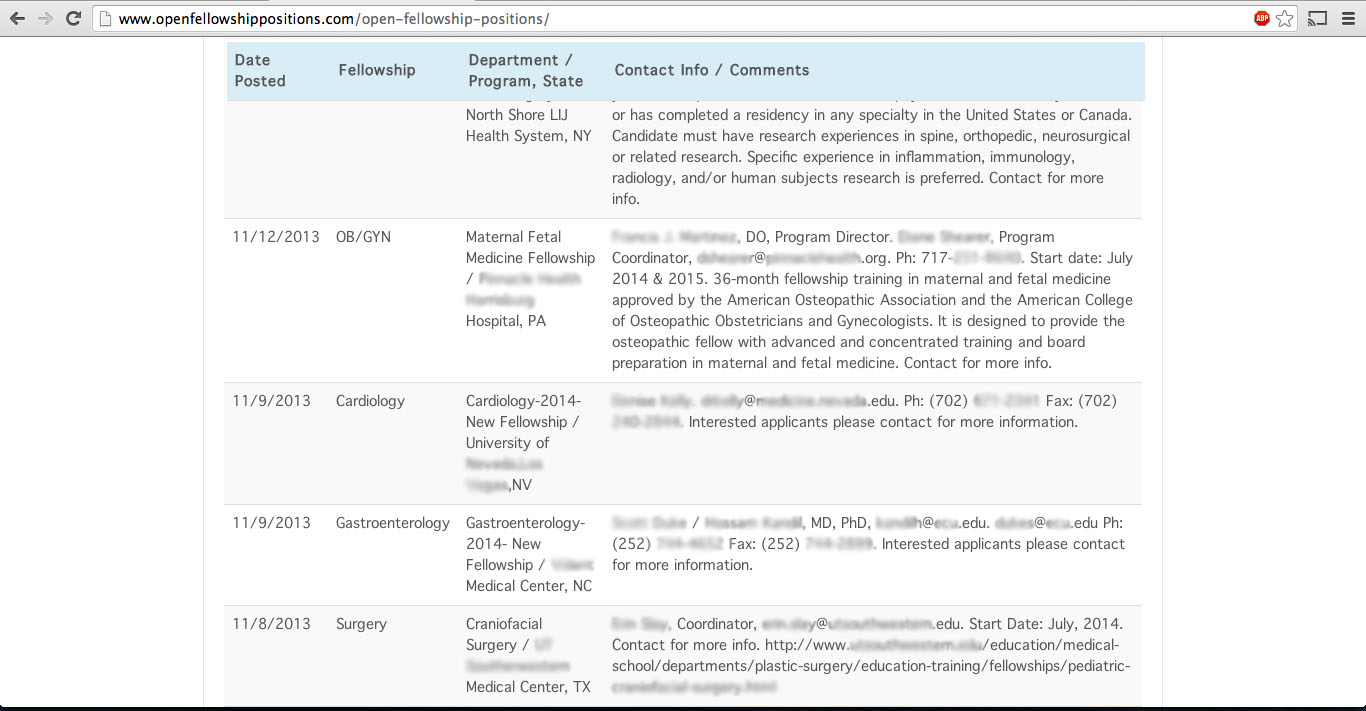If you’re looking for an open fellowship position in 2015, there are a few organizations you should be familiar with. They will help you in the fellowship process and in your future medical career.
They will not, however, help you to find unfilled fellowship positions – that’s where we come in:
Accreditation Council for Graduate Medical Education
This is the body responsible for accrediting most graduate-level medical fellowships and residencies in the United States. Its goal is to improve healthcare nationwide by promoting quality fellowship and residency programs. It is comprised of five member organizations including the American Medical Association and the Association of American Medical Colleges.
ACGME maintains a number of databases that help you to research fellowship programs you are interested in, and provides further resources you can use during your fellowship.
The organization also carries out annual surveys for fellows and faculty members, in order to ensure they maintain high standards of education and care. You can expect to receive such a survey during your fellowship.
American Medical Association
The AMA publishes FREIDA, a database of residency and fellowship programs in the US. It lists information provided by participating programs in annual surveys. It does not list unfilled positions, however.
National Residency Matching Program
The NRMP is a private organization that matches applicants with suitable residency programs. It was created by five organizations including the AMA as a way to improve the residency filling process in the US. It also matches residents with suitable fellowship programs. It does not list unfilled positions.
Open Fellowship positions
Our organization fulfills a similar mission to NRMP, more commonly known as the Match. Unlike the Match or any other programs listed, we match fellowship applicants with unfilled fellowship positions. You can use the resources listed to find more information about our unfilled positions, but they will not help you to locate these open positions.
We maintain a comprehensive list of unfilled fellowship positions, and are constantly searching for new ones. We also liaise with other organizations and individual programs to maintain a fully updated list.


 We understand how difficult it is for residents to find time to search for unfilled fellowship positions. It’s not only difficult to find these vacant fellowship programs but also apply for them on time because many of these vacancies have deadlines.
We want to provide you with this valuable resource that does all the work for you. This is why we are in constant contact with various organizations and fellowship programs so that we may provide you with the most up-to-date list available.
This gives our members the competitive advantage over non-members to find unfilled fellowship spots.
We understand how difficult it is for residents to find time to search for unfilled fellowship positions. It’s not only difficult to find these vacant fellowship programs but also apply for them on time because many of these vacancies have deadlines.
We want to provide you with this valuable resource that does all the work for you. This is why we are in constant contact with various organizations and fellowship programs so that we may provide you with the most up-to-date list available.
This gives our members the competitive advantage over non-members to find unfilled fellowship spots.
